The White Ribbon is a 2009 black-and-white German-language drama film written and directed by Michael Haneke. Das weiße Band, Eine deutsche Kindergeschichte (literally, "The White Ribbon, a German Children's Story") darkly depicts society and family in a northern German village just before World War I and, according to Haneke, "is about the roots of evil. Whether it’s religious or political terrorism, it’s the same thing."
| The White Ribbon | |
|---|---|
Theatrical release poster | |
| Directed by | Michael Haneke |
| Produced by | Stefan Arndt Veit Heiduschka Michael Katz Margaret Ménégoz Andrea Occhipinti |
| Written by | Michael Haneke |
| Starring | Christian Friedel Ulrich Tukur Josef Bierbichler |
| Narrated by | Ernst Jacobi |
| Cinematography | Christian Berger |
| Edited by | Monika Willi |
Production company | Wega Film X Filme |
| Distributed by | Filmladen (Austria) X Verleih AG (Germany) |
Release date |
|
Running time | 144 minutes |
| Language | German |
| Budget | US$18 million |
| Box office | US$19.3 million |
The film premiered at the 62nd Cannes Film Festival in May 2009 where it won the Palme d'Or, followed by positive reviews and several other major awards, including the 2010 Golden Globe Award for Best Foreign Language Film. The film also received two nominations at the 82nd Academy Awards in 2009: Best Foreign Language Film (representing Germany) and Best Cinematography (Christian Berger).
Screenplay
The memories of an unnamed elderly tailor form a parable from the distant year he worked as a village schoolteacher and met his fiancée Eva, a nanny. The setting is the fictitious Protestant village of Eichwald, Northern Germany, from July 1913 to 9 August 1914, where the local pastor, the doctor and the baron rule the roost over the area's women, children and peasant farmers.
The puritanical pastor leads confirmation classes and gives his pubescent children a guilty conscience over apparently small transgressions. He has them wear white ribbons as a reminder of the innocence and purity from which they have strayed. When under interrogation his son confesses to impure touching, the pastor has the boy’s hands tied to his bed frame each night. The doctor, a widower, treats the village children kindly but humiliates his housekeeper (the local midwife, with whom he is having sexual relations) and also sexually abuses his teenage daughter. The baron, who is the lord of the manor, underwrites harvest festivities for the villagers, many of them his farm workers. After his young son is abusively injured by unknown assailant(s), he summarily dismisses Eva for no apparent reason, yet defends the integrity of a farmer whose son in a symbolic act has destroyed the baron's field of cabbages.
The schoolteacher's friendship with Eva leads to a visit to her family home during a Christmas break; asking for her hand in marriage, he receives from her taciturn father a reluctant permission to marry, but only after a one-year test-period delay.
Unexplained harmful events occur. A wire is stretched between two trees causing the doctor a terrible fall from his horse. The farmer's wife dies at the sawmill when rotten floorboards give way; her son was the cabbage-field vandal, and her grieving husband later hangs himself. The baron’s young son Sigi goes missing on the day of the harvest festival and is found the following morning in the sawmill, bound and badly caned. A boy with Down syndrome goes missing and is found nearly blinded. A barn at the manor burns down. The baroness tells her husband that she is in love with another man. Shortly after the pastor has singled-out and mortified his daughter in class, she opens his parakeet's cage with scissors in hand; the pastor finds the bird on his desk, cruelly impaled in the shape of a cross. The steward's daughter claims a violent dream-premonition about harm coming to the midwife's handicapped son, then the boy is attacked and almost blinded, found during a night search along with a well-written note quoting Exodus 20:5. The steward at the baron's estate thrashes his son for violently stealing a flute from Sigi.
The midwife urgently commandeers a bicycle from the schoolteacher to go to the police in town, claiming that her son has said he knows who attacked him. She and her son are not seen again; meanwhile the doctor and his family have also suddenly disappeared, leaving a note on the door indicating his practice is closed. The schoolteacher's growing suspicions lead to a confrontation in the pastor's rectory, where he suggests that the pastor's children and students had prior knowledge of the local troubles and insinuates that they likely perpetrated them. Offended, the pastor berates him and threatens to report him to the authorities if he repeats his accusations.
The film ends a few days after World War I officially begins, with the final scene occurring in Sunday church on the day of a visit from the narrator's prospective father-in-law. Disquiet remains in the village, with no explanation of the violent events. The narrator is eventually drafted, leaving Eichwald, never to return.
- Christian Friedel as the school teacher
- Ernst Jacobi as narrator (voice only, school teacher many years later)
- Leonie Benesch as Eva, nanny to the baron and baroness's twin babies
- Ulrich Tukur as the baron
- Ursina Lardi as the baroness, Marie-Louise
- Fion Mutert as Sigmund, their oldest son
- Michael Kranz as Sigmund's tutor
- Burghart Klaußner as the pastor
- Steffi Kühnert as Anna, the pastor's wife
- Maria-Victoria Dragus as Klara, their oldest daughter
- Leonard Proxauf as Martin, their oldest son
- Levin Henning as Adolf
- Johanna Busse as Margarete
- Thibault Sérié as Gustav
- Josef Bierbichler as the baron's steward
- Gabriela Maria Schmeide as Emma, his wife
- Janina Fautz as Erna, their daughter
- Enno Trebs as Georg
- Theo Trebs as Ferdinand
- Rainer Bock as the doctor
- Roxane Duran as Anna, the doctor's daughter
- Susanne Lothar as the midwife
- Eddy Grahl as Karli, her son
- Branko Samarovski as a peasant
- Birgit Minichmayr as Frieda
- Aaron Denkel as Kurti
- Detlev Buck as Eva's father
- Carmen-Maja Antoni as the bathing midwife
Michael Haneke has said the project was in development for more than ten years. The initial version of the script was written as a television mini-series for the Austrian broadcaster ORF, but when no co-producer who was willing to invest in the project had been found after five years had passed, Haneke decided to put the project on hold. Eventually revived as a feature film, the production was led by the Austrian company Wega Film. It was also co-produced by X Filme (Germany), Les Films Du Losange (France) and Lucky Red (Italy). The film received financial support from the Austrian Film Institute, various local funds in Germany, the French CNC and the Council of Europe's film fund Eurimages. It had a total budget of around 12 million Euro.
More than 7,000 children were interviewed during the six-month-long casting period. For most of the adult roles, Haneke selected actors with whom he had worked before and therefore knew they were suitable for the roles. The role of the pastor was originally written for Ulrich Mühe, an actor who had starred in several of Haneke's past productions, but who died in 2007. Various actors were considered for replacement and eventually the part went to Burghart Klaußner, whom the director did not personally know before. Actors with significant stage experience were preferred because of the measured language of the screenplay.
Filming took place between 9 June and 4 September 2008. Locations were used in Leipzig, Lübeck, Michaelisbruch (Dreetz) and Netzow (Plattenburg) and Dassow (Schloss Johannstorf). The choice to make the film in black and white was based partly on the resemblance to photographs of the era, but also to create a distancing effect. All scenes were originally shot in color and then altered to black and white. Christian Berger, Haneke's usual director of photography, shot the film in Super 35 using a Moviecam Compact. Before filming started, Berger studied the black-and-white films Ingmar Bergman made with Sven Nykvist as cinematographer. Haneke wanted the environments to be very dark, so many indoor scenes used only practical light sources such as oil lamps and candles. In some of the darkest scenes, where the crew had been forced to add artificial lighting, extra shadows could be removed in the digital post-production which allowed for extensive retouching. The team in Vienna also sharpened objects and facial expressions, and modern details were removed from the images. In the dance scene, where the camera moves in 360 degrees, tiles were added frame by frame to replace the original Eternit roofs. Critic Christian Buß suggested references in the name of the fictitious village, "Eichwald", to the Nazi Obersturmbannführer Adolf Eichmann and the Buchenwald concentration camp. Eichwald is, however, a common German place name, meaning the "Oak Forest".
The film received its premiere on 21 May 2009 as an official selection at the 62nd Cannes Film Festival and had its theatrical release in Austria on 25 September 2009. In Germany, a release in selected cinemas on 17 September was followed by wide release on 15 October. American distribution by Sony Pictures Classics began 30 December 2009.
With a fully German cast and setting, as well as co-production by a German company, it has been discussed whether the film should be regarded as an Austrian or German production. Haneke himself has expressed indifference on the question: "In the Olympic Games the medal doesn't go to the country, but to the athlete." The general feeling is that it is primarily a Michael Haneke film.
Critical response
German critics were positive. Julia Evers of Oberösterreichische Nachrichten called the film "an oppressive and impressive moral painting, in which neither the audience nor the people in the village find an escape valve from the web of authority, hierarchy and violence. Everything in The White Ribbon is true. And that is why it is so difficult to bear." Markus Keuschnigg of Die Presse praised the "sober cinematography" along with the pacing of the narrative. Challenging accusations of Haneke's cinematic approach being cold and cynical, Keuschnigg instead hailed the director as uncompromising and sincerely humanistic. Die Welt's Peter Zander compared the film to Haneke's previous works Benny's Video and Funny Games, concluding that while the violence in the previous films had seemed distant and constructed, The White Ribbon demonstrates how it is a part of human society. Zander also applauded the "perfectly cast children", whom he held as "the real stars of this film". In Der Spiegel, Christian Buß opined that the work is "a horror drama, free from horror images", and praised its deviations from conventions of contemporary German cinema, writing that "Haneke forces us to learn how to see again".
The White Ribbon received largely positive reviews in English-language publications as well, garnering an 82/100 on Metacritic. Review aggregator Rotten Tomatoes also reports that 86% of critics have given the film a positive review based on 138 reviews, with an average score of 7.6/10. Mick LaSalle of the San Francisco Chronicle wrote, "What makes 'The White Ribbon' a big movie, an important movie, is that Haneke's point extends beyond pre-Nazi Germany. It might have been Bolshevism or any ideology that encourages blind devotion, that flatters people's vanity by telling them they're intelligent for not thinking and that they're virtuous for believing themselves better than their fellow citizens." In the New York Post, Kyle Smith praised the film as "both simple and complicated, sweeping and n
Watch movie The White Ribbon online on Amazon
Watch movie The White Ribbon online
Watch The Movie On PrimeMasti Full HD Movie Download
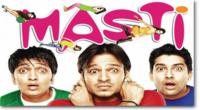
Main Aurr Mrs Khanna Full HD Movie Download

Dil Aur Mohabbat Full HD Movie Download
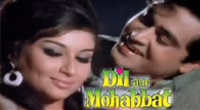
Ghar Full HD Movie Download

Shaheed-E-Azam Sardar Bhagat Singh Full HD Movie Download
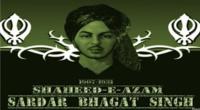
Paap Ki Duniya Full HD Movie Download
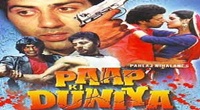
Do Knot Disturb Full HD Movie Download
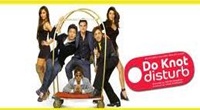
Dhoop Chhaon (1977) Full HD Movie Download
.jpg)
Odd Couple Full HD Movie Download
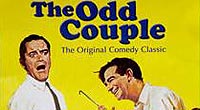
Antham Full HD Movie Download
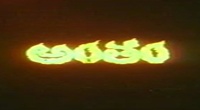
Penmani Aval Kanmani Full HD Movie Download
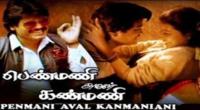
Seven Full HD Movie Download

Bat Hunter Full HD Movie Download
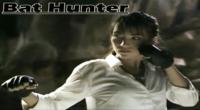
Circle Of Two Full HD Movie Download
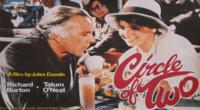
Edutha Sabatham Mudipen Full HD Movie Download
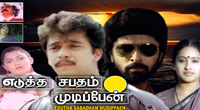
Sowrya Full HD Movie Download
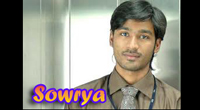
Idekkada Nyayam Full HD Movie Download
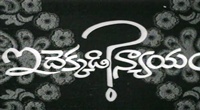
Parmeswari Mahimalu Full HD Movie Download
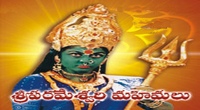
Nice Guy Full HD Movie Download
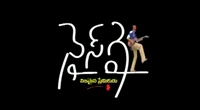
Dhoom Full HD Movie Download
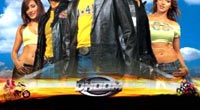
Mere Dad Ki Maruti (2012) Full HD Movie Download
.jpg)
Download latest Movie from bollywood
- 1> baaghi 3
- 2> THE SKY IS PINK MOVIE FULL STORY AND REVIEW
- 3> Luka Chuppi
- 4> TO ALL THE BOYS I’VE LOVED BEFORE
- 5> Kabir Singh
- 6> Street Dancer 3D
- 7> Simmba
- 8> Gone Girl
- 9> The Girl Who Lived
- 10> Ludo
- 11> DILWALE DULHANIA LE JAYENGE
- 12> GUILTY
- 13> The Godfather
- 14> Adventures of Rusty
- 15> Sooryavanshi
- 16> Satyameva Jayate 2
- 17> Thappad
- 18> Bhool Bhulaiyaa 2
- 19> KGFChapter 2
- 20> Mardaani 2
- 21> Pinjar
- 22> Shivaji maharaj
- 23> Ek Villian 2
- 24> Hungama 2
- 25> Divergent
- 26> Mumbai Saga
- 27> The Internship
- 28> HIT (telugu)
- 29> Panga
- 30> The perfect date
- 31> 16 December
- 32> Gopala Gopala (Telugu)
- 33> Brahmastra
- 34> Gangubai Kathiawadi
- 35> Manmadhudu
- 36> Nenu local
- 37> Mahanati
- 38> Shatamanam bavathi
- 39> Lagaan
- 40> After
- 41> MOM
- 42> Shamshera
- 43> Raguvaran BTech
- 44> Khakee
- 45> The villain
- 46> OM
- 47> Mr. perfect
- 48> Bueatifull mind
- 49> Hichki
- 50> Gabbar Singh
- 51> Jogi
- 52> Before Sunrise
- 53> Before Sunset
- 54> Before Midnight
- 55> The Big Bull
- 56> Top Gun: Maverick
- 57> The Purge
- 58> The Sky is Pink
- 59> Laxmmi Bomb
- 60> Sadak 2
- 61> Sufna
- 62> Prithviraj
- 63> PK
- 64> Coolie No 1(2020)
- 65> Black Widow
- 66> Dear Zindagi
- 67> Dil Bechara
- 68> PHIR HERA PHERI
- 69> WAR
- 70> Dostana
- 71> RRR: Roudram Ranam Rudhiram
- 72> Maidan
- 73> Dabbang 3
- 74> Chhalaang
- 75> life as we know it
- 76> SherShaah
- 77> Sandeep Aur Pinky Faraar
- 78> Event Horizon
- 79> 83
- 80> Radhe: Your Most Wanted Bhai
- 81> Gunjan Saxena: The Kargil Girl
- 82> Mr India
- 83> Vivah
- 84> Anokha Bandhan
- 85> Ghost
- 86> Bhoot: Part One - The Haunted Ship
- 87> Haseen Dilruba
- 88> Laal Singh Chaddha
- 89> Qismat
- 90> Rajput
- 91> Drive
- 92> Dil Chahta Hai
- 93> Dil Ki Baazi
- 94> Dil Ka Rishta
- 95> Teesri Manzil
- 96> Dil
- 97> Love Aaj Kal
- 98> Khaali Peeli
- 99> Bunty Aur Babli 2
- 100> Atrangi Re
- 101> Gulabo Sitabo
- 102> Jodi
- 103> Suraj Pe Mangal Bhari
- 104> Deewana
- 105> Attack
- 106> Sardar Udham Singh
- 107> Toofan
- 108> THE LOVEBIRDS
- 109> Jersey
- 110> Ginny Weds Sunny
- 111> Thalaivi
- 112> Shiddat
- 113> Angels vs Zombies
- 114> Koi Mil Gya
- 115> Thank God
- 116> Bhuj: The Pride of India
- 117> Hum Aapke Hain Kaun
- 118> The Platform
- 119> Bird Box
- 120> Roohi Afzana
- 121> Torbaaz
- 122> Nikamma
- 123> World War Z
- 124> Extraction
- 125> Train to Busan
- 126> Life of Pi
- 127> SHAADI MEIN JROOR AANA
- 128> Himmat Aur Mehnat
- 129> To All The Boys: P.S. I Still Love You
- 130> Mimi
- 131> Good Newwz
- 132> Shubh Mangal Zyada Saavdhan
- 133> Raabta
- 134> Harry Potter and the Philosopher's Stone
- 135> Harry Potter and the Chamber of Secrets
- 136> Chhapaak
- 137> War of the Worlds
- 138> Harry Potter and the Prisoner of Azkaban
- 139> Harry Potter and the Goblet of Fire
- 140> MURDER MYSTERY
- 141> Shakuntala Devi
- 142> Bachchan Pandey
- 143> Jayeshbhai Jordar
- 144> Sheer Qorma
- 145> Saina
- 146> 'O' Pushpa I hate tears
- 147> Kedarnath
- 148> MS Dhoni The Untold Story
- 149> Chhichhore
- 150> Badhaai Ho
- 151> Unstoppable
- 152> Oz the Great And Powerful
- 153> The Girl on the Train
- 154> Haathi Mere Saathi 2020
- 155> The Conjuring: The Devil Made Me Do It
- 156> Gandhi Se Pehle Gandhi
- 157> The Song of Scorpions
- 158> Srimanthudu
- 159> Hello Guru Prema Kosame
- 160> Beauty and The Beast
- 161> Black Panther
- 162> Charlie and the Chocolate Factory
- 163> Bole Chudiyan
- 164> Fidaa
- 165> Duvvada Jagannadham
- 166> Bruce Lee: The Fighter
- 167> Hyper
- 168> Yaara
- 169> Red (2020)
- 170> Shivam
- 171> That Is Mahalakshmi
- 172> Nishabdham
- 173> Aashram 2020 web series
- 174> Laxmii
- 175> Mismatched
- 176> STUDENT OF THE YEAR 2
- 177> NAIL POLISH
- 178> Ramprasad Ki Tehrvi
- 179> KAAGAZ
- 180> 12 o Clock
- 181> The Power
- 182> bolo hau
- 183> Tribhanga
- 184> JAMUN
- 185> Madam Chief Minister
- 186> Maasaab
- 187> Aadhaar
- 188> Tanhaji
- 189> Bhaagi 3
- 190> Bhootnath
- 191> MALANG
- 192> Jai Mummy Di
- 193> Haathi Mere Saathi 2021
- 194> Shakeela
- 195> Unpaused
- 196> Annayya
- 197> Vamsoddharakudu
- 198> Mrugaraju
- 199> Narasimha Naidu
- 200> Sankranti
- 201> Manasu Maata Vinadhu
- 202> Anjaane
- 203> Apaharan
- 204> Bachke Rehna Re Baba
- 205> Bewafaa
- 206> Roohi
- 207> Radhe
- 208> Zindagi Khoobsoorat Hai
- 209> Yeh Mohabbat Hai
- 210> Yeh Kya Ho Raha Hai?
- 211> The Tomorrow War
- 212> DehradunDiary
- 213> Meri Shaadi Karaoo
- 214> Matruu Ki Bijlee Ka Mandola
- 215> No One Killed Jesica
- 216> Aag Ka Goola
- 217> Eight Million Dollars
- 218> Three Hundred
- 219> Cats and Dog
- 220> Decoy
- 221> Gold Rush
- 222> You Have Got Mail
- 223> Final Destination three
- 224> Tofan
- 225> Jungle
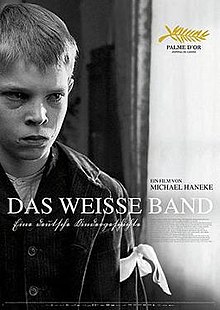 Story of movie The White Ribbon :
Story of movie The White Ribbon : 